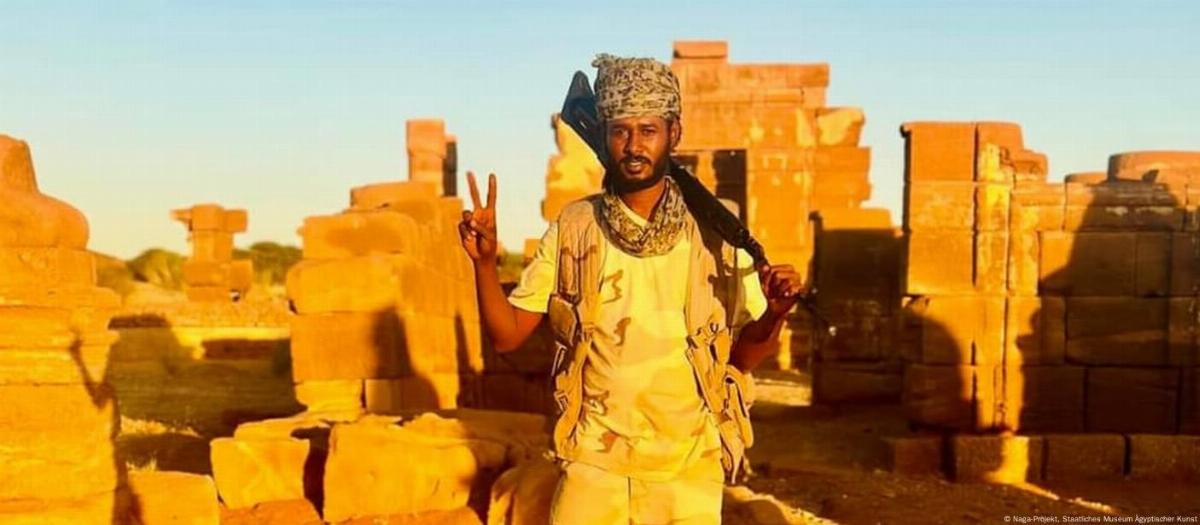
War-torn Sudan faces cultural ruin
Sudan is currently experiencing a profound humanitarian crisis alongside a devastating civil conflict that threatens its cultural heritage. Since April 2023, rival military factions have been engaged in combat for control over the resource-rich nation, leading to widespread displacement and destruction.
Among the areas severely impacted is the ancient site of Naga, located approximately 200 kilometers northeast of Khartoum. Once a royal residence of the Kingdom of Meroe, Naga is a UNESCO World Heritage site renowned for its archaeological significance, featuring multiple temples and palaces that date back to around 250 B.C. Despite extensive restoration efforts since the 1990s, the site is now vulnerable amid the ongoing violence. Soldiers from the Rapid Support Forces, led by Mohammed Hamdan Dagalo, have been reported posing at the ruins, exacerbating concerns about the safety of these historical structures.
The cultural situation in Sudan has reached a critical point. UNESCO has reported unprecedented threats to cultural sites, with widespread looting and destruction of museums and archaeological collections. More than 10 million people are currently displaced within Sudan, with significant portions of the population facing hunger. The Director of the Munich Museum of Egyptian Art, Arnulf Schlüter, expressed grave concerns about the future of Sudan's archaeological projects, stating that many excavation workers have fled, and vital equipment has been stolen.
In addition to Naga, Khartoum's National Museum has also suffered from looting, despite recent restoration efforts supported by UNESCO. The ongoing conflict has raised alarms within the international community regarding the illicit sale of Sudanese artifacts, with UNESCO urging art market investors to refrain from acquiring items from the region. Such actions threaten not only the preservation of Sudanese cultural identity but also the potential for recovery in the aftermath of the conflict.
The destruction extends beyond ancient sites; the iconic Souq Market of Omdurman has been entirely burned out, highlighting the extensive impact of warfare on civilian infrastructure. Cultural institutions, such as the Goethe-Institut in Khartoum, have closed due to safety concerns, further hindering cultural exchange and support.
In response to the crisis, cultural organizations in neighboring countries, such as the Goethe-Institut in Cairo, have initiated programs to support displaced cultural workers from Sudan. However, travel to Sudan has become increasingly dangerous, with experts advising against visits to the war-torn nation.
As the conflict continues, Sudan’s rich cultural heritage faces an uncertain future, with fears that historical sites may be irreparably damaged or lost.







